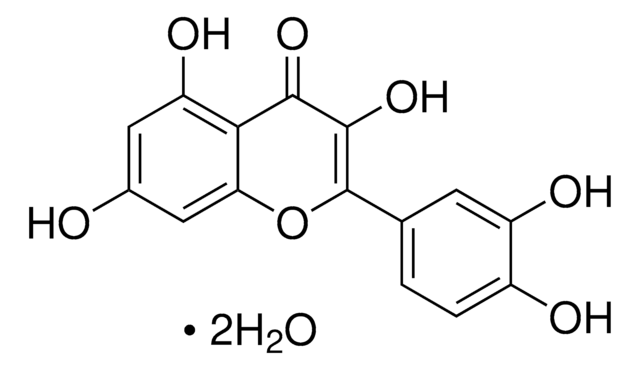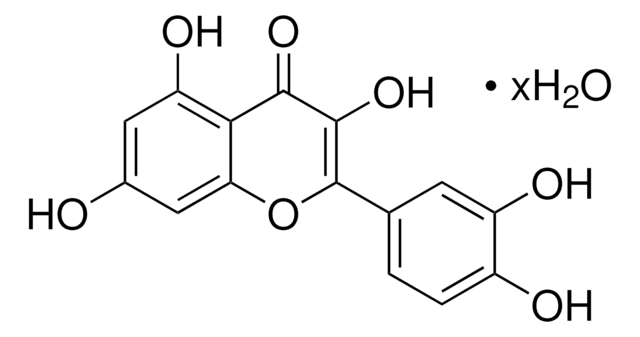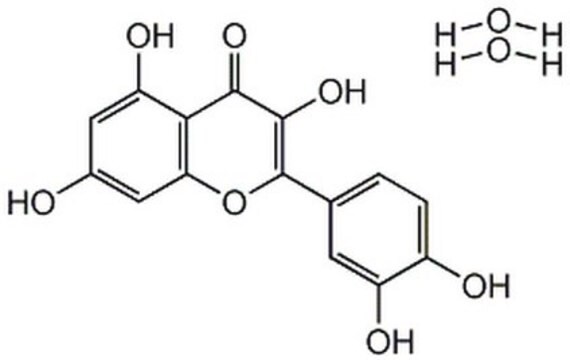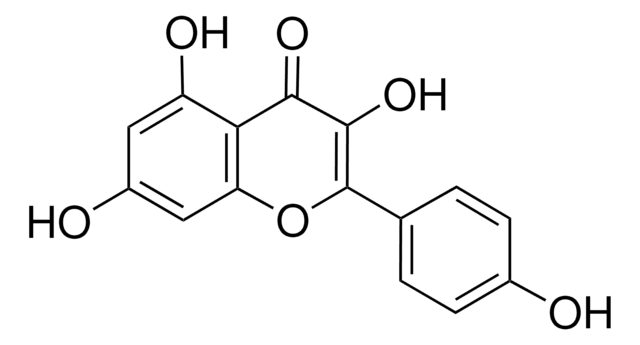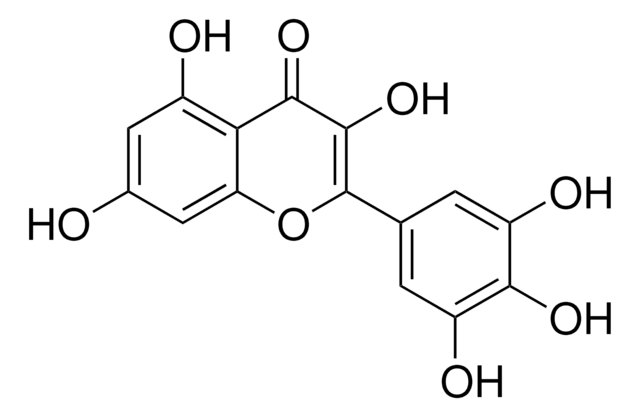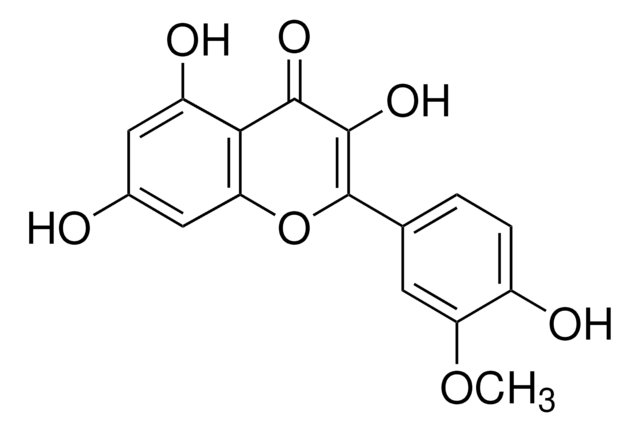00200595
Quercetin dihydrate
primary reference standard
Synonym(s):
2-(3,4-Dihydroxyphenyl)-3,5,7-trihydroxy-4H-1-benzopyran-4-one dihydrate, 3,3′,4′,5,7-Pentahydroxyflavone dihydrate
About This Item
Recommended Products
grade
primary reference standard
form
powder
shelf life
limited shelf life, expiry date on the label
manufacturer/tradename
HWI
technique(s)
HPLC: suitable
gas chromatography (GC): suitable
mp
>300 °C (lit.)
SMILES string
OC(C(O)=C1)=CC=C1C2=C(O)C(C3=C(O)C=C(O)C=C3O2)=O
InChI
1S/C15H10O7.2H2O/c16-7-4-10(19)12-11(5-7)22-15(14(21)13(12)20)6-1-2-8(17)9(18)3-6;;/h1-5,16-19,21H;2*1H2
InChI key
GMGIWEZSKCNYSW-UHFFFAOYSA-N
Looking for similar products? Visit Product Comparison Guide
General description
Exact content by quantitative NMR can be found on the certificate.
Application
Biochem/physiol Actions
Other Notes
Signal Word
Danger
Hazard Statements
Precautionary Statements
Hazard Classifications
Acute Tox. 3 Oral
Storage Class Code
6.1C - Combustible acute toxic Cat.3 / toxic compounds or compounds which causing chronic effects
WGK
WGK 1
Regulatory Listings
Regulatory Listings are mainly provided for chemical products. Only limited information can be provided here for non-chemical products. No entry means none of the components are listed. It is the user’s obligation to ensure the safe and legal use of the product.
JAN Code
00200595-50MG:
Choose from one of the most recent versions:
Certificates of Analysis (COA)
Don't see the Right Version?
If you require a particular version, you can look up a specific certificate by the Lot or Batch number.
Already Own This Product?
Find documentation for the products that you have recently purchased in the Document Library.
Customers Also Viewed
Our team of scientists has experience in all areas of research including Life Science, Material Science, Chemical Synthesis, Chromatography, Analytical and many others.
Contact Technical Service